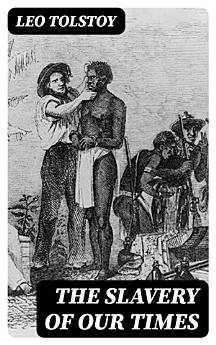關於本電子書
In "The Slavery of Our Times," Leo Tolstoy delves into the urgent social issues of his era, exploring the theme of moral and economic servitude that pervades society. Written in his characteristic style of profound simplicity intertwined with philosophical depth, the work critiques the systemic inequalities of late 19th-century Russia. Tolstoy's incisive prose illuminates the plight of the laboring class, revealing how societal structures perpetuate bondage under the guise of progress. This eloquent essay, reflective of the realist movement, presents an incisive commentary on human dignity, emphasizing the interconnectedness of personal and societal morality. Leo Tolstoy, renowned for his monumental novels such as "War and Peace" and "Anna Karenina," was not merely a fiction writer but a profound thinker deeply engaged with the moral issues of his time. His personal experiences as a landowner and his subsequent moral awakening led him to advocate for social change and the alleviation of human suffering. Tolstoy's exposure to various social movements and his spiritual inquiries further shaped his perspective, laying the groundwork for this compelling analysis of modern slavery. Readers seeking a thought-provoking examination of social justice and individual responsibility will find "The Slavery of Our Times" an essential read. Tolstoy's compelling arguments and moral reflections provoke critical thinking, encouraging readers to confront the ethical dilemmas of their own lives. This work not only serves as a powerful critique of socio-economic conditions but also urges a more profound introspection into the nature of freedom and human dignity.
關於作者
Count Lev Nikolayevich Tolstoy, known more commonly in English as Leo Tolstoy, was one of literature's most significant figures, born on September 9, 1828, in Yasnaya Polyana, Russian Empire. His opus includes novels, short stories, plays, and philosophical essays. Tolstoy's literary style is characterized by intricate character development and a profound moral consciousness. Considered one of the greatest novelists of all time, Tolstoy's masterpiece, 'War and Peace' (1869), and 'Anna Karenina' (1877) are emblematic of realist fiction and illustrate the breadth of Russian society with psychological depth and detailed physical setting. In his later years, Tolstoy became a moral thinker and social reformer, influencing nonviolent resistance globally. His book 'The Slavery of Our Times' underscores his late philosophical ponderings about the economic and social structure of society and its inherent injustices. This work reflects his belief that individual moral responsibility is the key to social reform. Tolstoy's convictions led him to a simpler lifestyle, renouncing his aristocratic heritage and embracing aspects of Christian anarchism. He died on November 20, 1910, leaving a legacy that transcends literature and continues to provoke philosophical discussions regarding social justice and spirituality.
為這本電子書評分
歡迎提供意見。
閱讀資訊
智慧型手機與平板電腦
筆記型電腦和電腦
你可以使用電腦的網路瀏覽器聆聽你在 Google Play 購買的有聲書。
電子書閱讀器與其他裝置
如要在 Kobo 電子閱讀器這類電子書裝置上閱覽書籍,必須將檔案下載並傳輸到該裝置上。請按照說明中心的詳細操作說明,將檔案傳輸到支援的電子閱讀器上。






